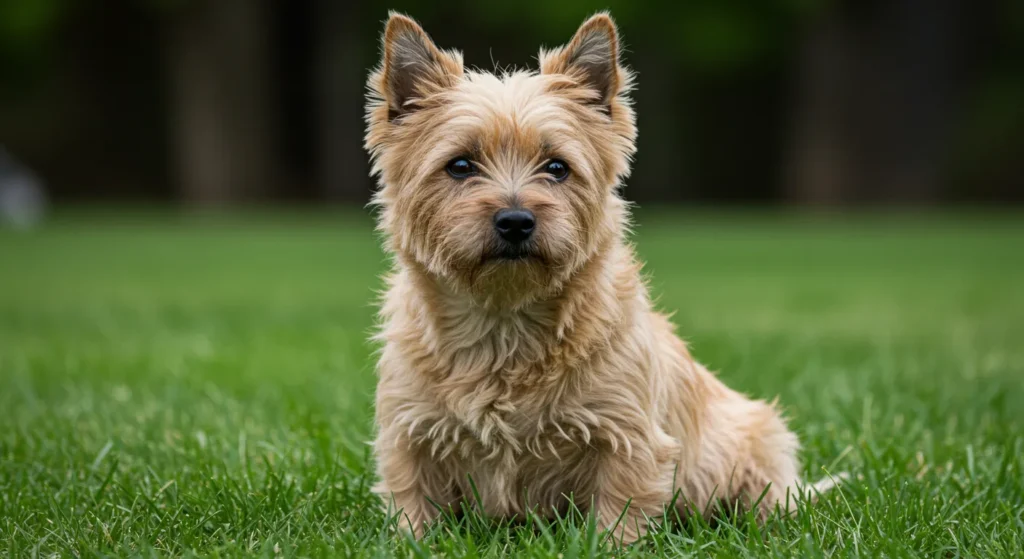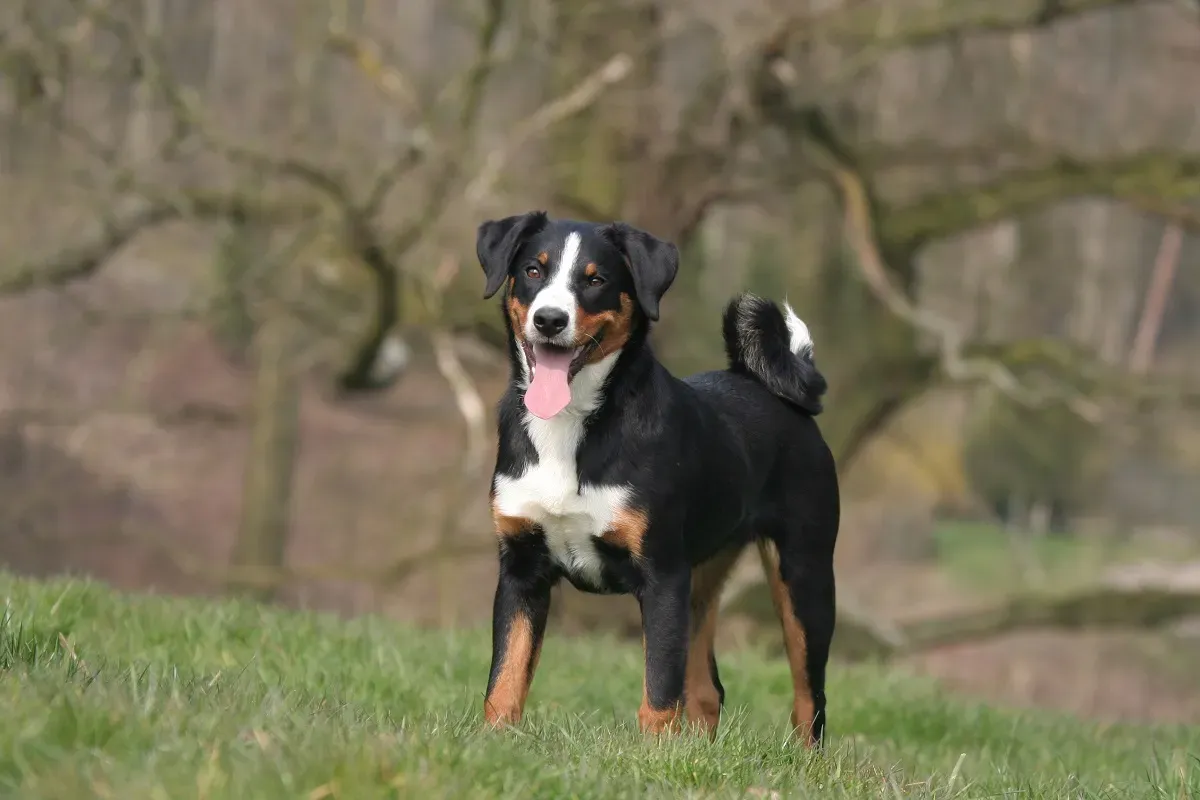
Cairn Terrier
Heena
June 8, 2025

The Cairn Terrier is one of the oldest terrier breeds, originating from the Scottish Highlands. Known for its bold personality, shaggy appearance, and loyalty, this small yet sturdy dog was originally bred to hunt vermin between the rocky cairns (stone piles) of Scotland. Today, the Cairn Terrier is a beloved family pet in both the UK and USA, known for its intelligence, courage, and cheerful spirit.
Appearance: Breed Colors & Markings
Cairn Terriers have a small, compact body, a broad head with expressive eyes, and pointed ears that give them an alert look. Their weather-resistant double coat is rough and tousled, adding to their rugged charm.
Common Coat Colors:
- Wheaten (light cream to reddish gold)
- Brindle (black and gray striped)
- Gray
- Red
- Black
Cairns often change coat color as they grow older, and a puppy’s color may evolve over time. The breed standard excludes white, though a few white hairs are allowed.
Age & Life Expectancy
Cairn Terriers generally live between 12 to 15 years, with some reaching up to 17 years with excellent care. They are a hardy breed with few serious health problems, making them long-lived companions.
Personality and Communication
The Cairn Terrier is spirited, curious, and confident. It is known for being affectionate with family members but can be independent at times. They are vocal dogs and will often “talk” in barks, growls, or playful noises to express emotions. Early training helps curb excessive barking.
They are:
- Alert and responsive
- Playful and good with children
- Naturally inquisitive and love to dig or chase
Their intelligence makes them quick learners, but their terrier stubbornness may require firm and patient training.
Diet: What Do Cairn Terriers Eat?
A balanced diet for a Cairn Terrier includes:
- High-quality dry or wet dog food
- Protein-rich meats like chicken, lamb, turkey, or fish
- Carbohydrates like rice or oatmeal
- Vegetables such as peas, carrots, and spinach
Cairns can gain weight if overfed. Treats should be healthy and given in moderation. Avoid table scraps, especially fatty or salty foods.
Foods to Avoid:
- Chocolate
- Grapes and raisins
- Onions and garlic
- Caffeine and alcohol
Fresh, clean water should always be available.
What to Expect When Caring for a Cairn Terrier
Health
Cairn Terriers are generally healthy, but like all breeds, they may be prone to certain conditions:
- Craniomandibular Osteopathy (in puppies)
- Allergies (food or environmental)
- Hip Dysplasia
- Hypothyroidism
- Legg-Calve-Perthes Disease (hip joint condition)
Regular vet visits, a proper diet, and preventive care can help keep your Cairn healthy.
Grooming
Cairns have a thick, wiry outer coat and a soft undercoat. They are low shedders but require regular grooming.
Grooming Tips:
- Brush 2–3 times per week to remove dirt and loose hair
- Hand-stripping (removing dead hair by hand) 2–3 times a year for show dogs
- Bathe only when necessary to maintain coat texture
- Trim nails every 3–4 weeks
- Clean ears weekly
Avoid frequent bathing, which can soften the natural coat texture.
Exercise
Though small, Cairn Terriers are energetic and need regular physical activity to stay fit and happy.
Recommended Daily Exercise:
- 30–45 minutes of walks or play
- Games like fetch or agility
- Puzzle toys for mental stimulation
- Safe, enclosed areas for off-leash play
They love to dig, so a secure garden or play space is ideal.
Training
Training a Cairn Terrier can be fun, but consistency is key. Their intelligence and independence can lead to stubborn behavior without firm guidance.
Training Tips:
- Start early with basic commands
- Use positive reinforcement (treats, praise)
- Be consistent and patient
- Socialize with people and other pets early
Avoid harsh methods—Cairns respond best to gentle, reward-based training.
Nutrition
Feed your Cairn a diet appropriate for its age (puppy, adult, or senior). Small breed formulas are often best, as they are designed to meet the nutritional needs of active, smaller dogs.
Feeding Frequency:
- Puppies: 3–4 meals a day
- Adults: 2 meals a day
Watch for signs of allergies or sensitivities, such as itchy skin or digestive issues, and consult your vet for guidance.
Living with a Cairn Terrier
Cairn Terriers adapt well to both apartments and houses, as long as they get daily exercise. They love being part of the family and are happiest when included in daily activities. They may try to chase cats or small animals, but early socialization helps reduce this behavior.
Cairns are excellent watchdogs—they’ll alert you to any visitors but are not aggressive. They do best in homes where their energetic, intelligent nature is appreciated.
Is the Cairn Terrier Right for You?
If you want a small, hardy, and cheerful dog that brings energy and affection to your home, the Cairn Terrier might be the perfect match. They do require time, training, and attention, but in return, they offer loyalty, playfulness, and a touch of Scottish charm.

